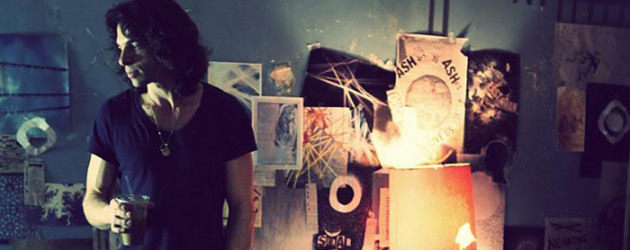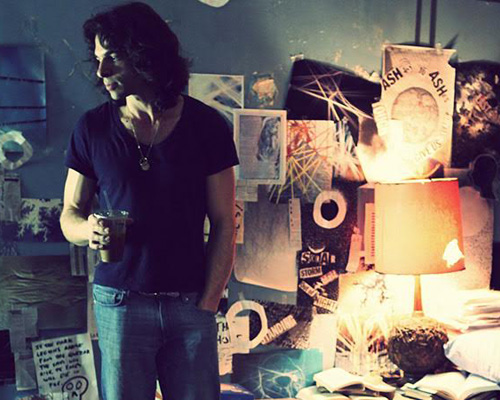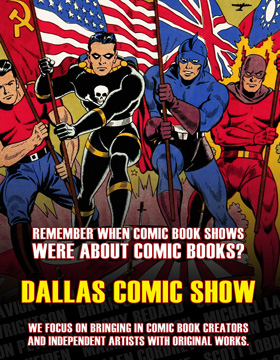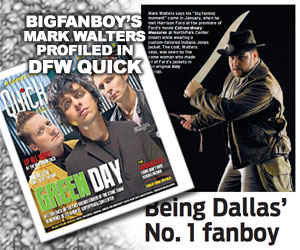With his long dark hair and bright brown eyes, Paul Dalio could be mistaken for a young independent rock star. But the man is a film writer and director… and also an actor and cinematic musician. Recently he was in town to promote his newest film Touched with Fire. The story is of a young poet named Carla, played by Katie Holmes. She is brilliant and a manic depressive, dealing with bipolar disease. With the gentle push of her mother (Christine Lahti), Carla is placed in a mental institution. There she meets Marco (Luke Kirby), who is also a bipolar person with manic depression. They find common ground which eventually builds into a romantic relationship. It is the story of how similar people are challenged not only to themselves but to each other. Also, it is about how a family tries to understand a loved one who has this ‘mental gift’ to cope with.
Paul also has this affliction so he can understand the different elements a person must endure. He sees manic depression as both a horror and a gift. He used the creative outlet of underground rap poetry to get out of the deep well of manic depression. Bit by bit and emotion by emotion, he came out of this dark place. He patterned the color scheme of the film from another mentally challenged work of art – “Starry, Starry Night” by Vincent Van Gogh.
Even though Paul opted for a dark gray shirt and dark jeans, and one would justifiably guess that the director is a dark person, that could not be further from the truth. He is light and animated when talking about his life and career. He works closely with his producing partner Kristina Nikolova, who is also his wife. They have a young child who was born on the last day of the shoot.
Marco is directly based on Paul, both in the way he talks and how he is on screen. The character is spiteful to the human race. “When I romanticized it, the state was almost the tragic way that I would have had if I would have gone down that road,” said Paul. He considers that making it through this challenge was a gift from God. Paul found that putting the writing on the page was a cathartic experience to revisit parts of his life. “Unresolved pain,” he said, “unresolved suffering felt like it was there for no purpose. It just lingers there and you can’t comprehend it and why God would do something like that. To bring closure out of it and to bring meaning to it is the reason to bring it the world.”
Carla was not based on his wife but he was writing it while they were dating. He admitted that there were elements of Kristina in Carla. “My love for Kristina translated into someone I would love.” There are elements of Kristina and how he imagined a woman who was afflicted with bipolar disease. He considers it perfect that Kristina happened while he was creating Carla. Katie Holmes plays Carla and Paul was happy about her performance. Everyone thought that Katie would strongly respond to the role. “There was something in her that was Carla. She was so intense about it. She has such a strong emotional range and imagination. She worked so hard to get there.” He finished by saying, “She lived it, she was there.”
When he wrote the screenplay, Paul had an inclination towards poetry but was suddenly driven by the dormant seeds of nature that was an inspiration. Since Paul suffers from manic depression and has a bipolar disease, he is uniquely qualified to understand the struggles with living life while having this ailment. He noted, “Even the most astute and best directors have no choice but to look at bipolar through a clinical lens. Everything they know about bipolar is from the way the label sounds. The way the portrayal it is filtered through is as they see this person. They don’t understand and they paint this person from the outside. They have no choice but to paint them with a clinical light.”
Paul felt that there was a sense of duty to portray the disease in a different light, a light of compassion. “I felt that there was a chance that I could get the audience to see through the other person’s eyes. That is the beauty of film and that is why we make films, to be able to show someone another person’s perspective and to break down walls.
That is the hope of art with every cinematic element — to feel through their hearts and see through their eyes. It is a beautiful thing as well as a painful thing.”
He wants the audience to see the people for who they are and they can do more than just survive. He notes, “Human spirit just can’t tolerate just getting-by. The human spirit needs more and it needs to feel that it can rise above what it went through to something greater. It needs to feel respected, appreciated and admired.”
“If you want to change someone who is, in your eyes, not behaving the way they should or being a negative person, you are not going to change them if you paint them in a light they do not feel like they identify with,” he added. “In any film, you search for the humanity in them and that they are able to see themselves in them.” He stated that there needs to be hope in the audience. They may be an audience who might be well-intended in attitude so they might be able to have bipolars respected. The goal is to learn how to handle the situation.
Paul found that some mental health doctors were helpful and others were harsh. His hope with Touched by Fire is for them to ask themselves what they are doing, stating “Doctors should think ‘Maybe I should talk to my patients differently’ or ‘Maybe I am degrading my patient by simply saying they have an illness’ or ‘Maybe they will more responsive to different medicine’ which are all statements doctors should consider.” He knows that some doctors and parents see bipolar disease as a challenge of depression. “It is so draining,” he said, “and some (people) cannot take it.” He sees that they are so lost in their own hell that they cannot see another’s hell. Paul compared it to a drowning victim who pulls others down to save themselves. “You are lost in your own suffering to see outside yourself to the suffering of other people.”
“These people are trying to get out of the abyss,” he concluded, “and little opportunity to give them some dignity I think is valuable and is helpful.” On making a motion picture, there is a difference between writing the film and directing the film. Paul has done both and saw this difference. He said, “It is always evolving, it is always changing. I think it is important as a director to be flexible and to be open minded so that you are always evolving the thing.”
“At first,” he said, “it was disorientating to the actors but then they got into the spirit of the thing and got to improvise around their lines. Most of what you see on the screen is written in the script, there are moments where they improvised. They were illuminating moments. It is never done until it is done.” He admitted that the same happened in editing and finished the thought by saying, “The more clear the vision is, the more you know if you are going off track.”
“The main metaphor of the film is the eclipse and of the sun and the moon coming together and the unsustainable beauty of the eclipse,” he said, “but the real fire was the sustainable fire of the child they never had.” Asked if Carla would be a poet even if she were not a manic-depressive, Paul said, “I was trying to figure that out when I was writing her character and when I wrote the character she was where she had an inclination toward poetry. It was like she was subtly driven by the dormant seed of her nature that hadn’t surfaced yet, which is why she was obsessed with the sun. Like Icarus, she felt this itching that her poetry was inspiring her to go further until she was going over the edge of life. It is almost like the saying God punishes you by answering your prayers. She got what she wanted and was lost in it. She was using the poetry to make sense of her situation.”
Even though he wrote Touched with Fire, Paul never saw himself in the characters during the filming. “Some people don’t do personal stuff,” he said, “but I like to do personal stuff. You always want to create metaphors. Because if it is exactly as it happened, you make it less poignant. It is better to extract things and boil it down to its truth. For me, the boiling it down to its essence of what I was going through and stripping away the things that weren’t relevant but finding the universal connection between me and other people going through this is what was in common. I think you have to erase all things that are irreverent. You are putting your soul on that screen when you write and direct something. If it gets criticized, you can’t hide. You can’t have shame. The great thing about going insane is you have no inhibitions.”
He feels good about the final cut of Touched with Fire and the audience laughs in the right spots. “You have to be able to laugh at yourself,” the director said of certain scenes. “It is beautiful to me.” On his illness he noted, “My dad was having such a hard time dealing with this. I would lose my job going manic and I wouldn’t pay the bills. He wouldn’t want to support me, like enable this, but at the same time he wouldn’t want me to starve to death. So, he’d go ‘We’re going to put you on the tuna fish diet.’ Which was basically meaning I wasn’t going to get anything other than tuna fish. No mayonnaise, no nothing. So it would get my act together. I would go ‘I don’t need tuna fish, I can live off ketchup.’ The power was off and I’d have the extension cord plugged to something outside.”
“There was so much humor to the character and the situation. It was important for the audience to tap in because there is so much humor in the situation. You have to have it,” Paul said of dealing with both the disease and the script. “To appreciate the situation, there has to be balance.” He believes that he has deeper and more meaningful emotions since his recovery. He sees the light that can come out of such darkness. Of this he said, “You have to turn your curse into a gift and you need to have more hope.”









